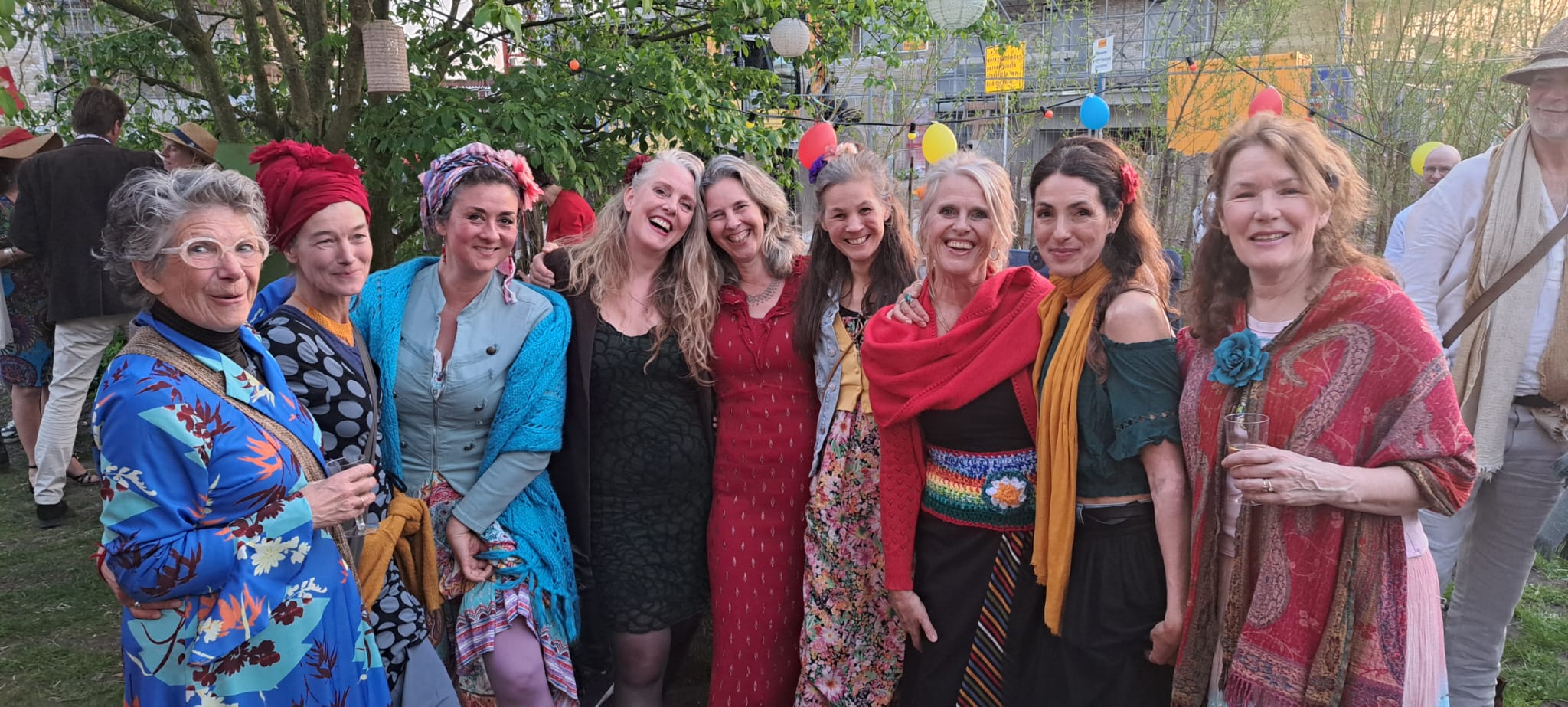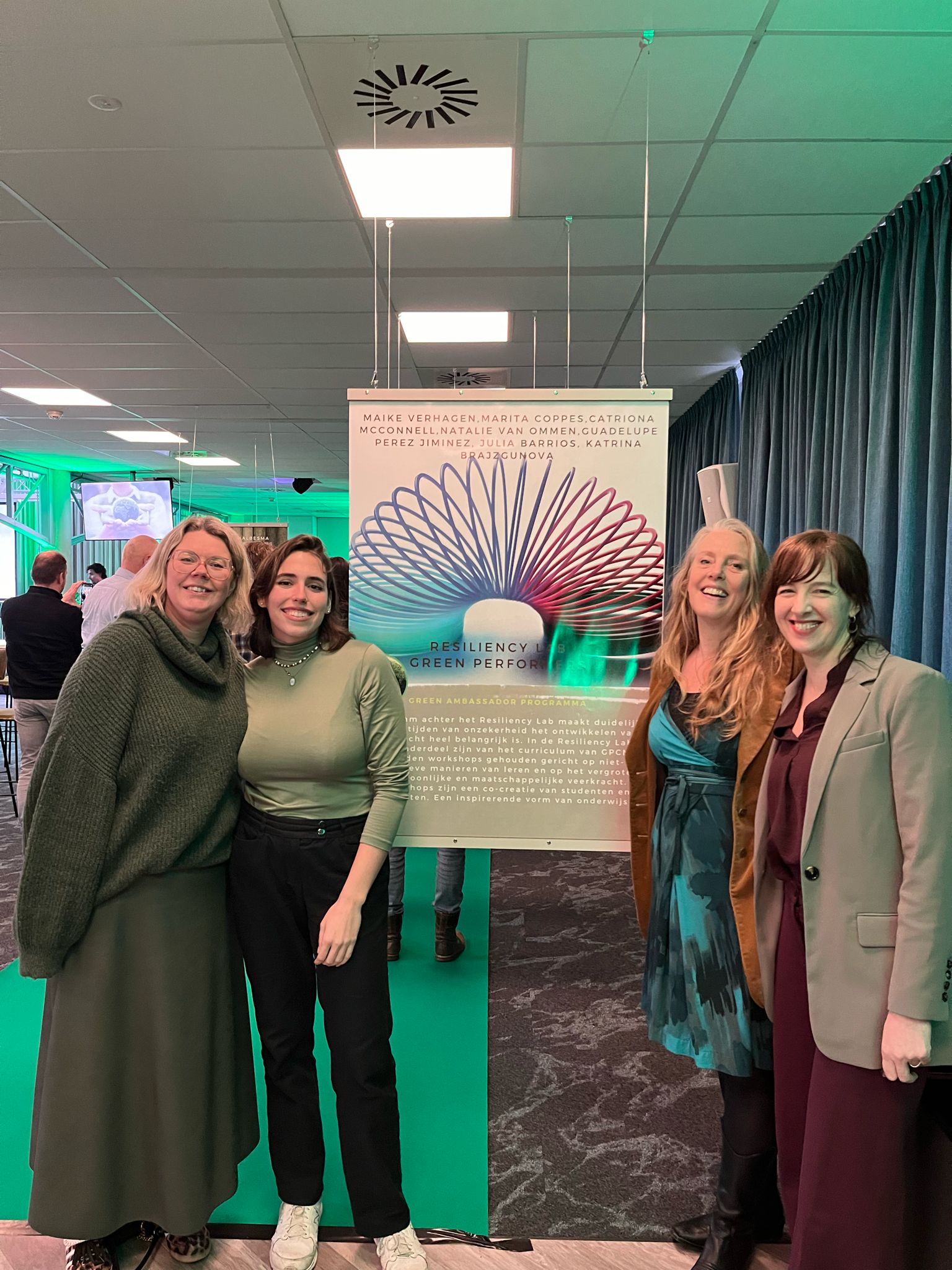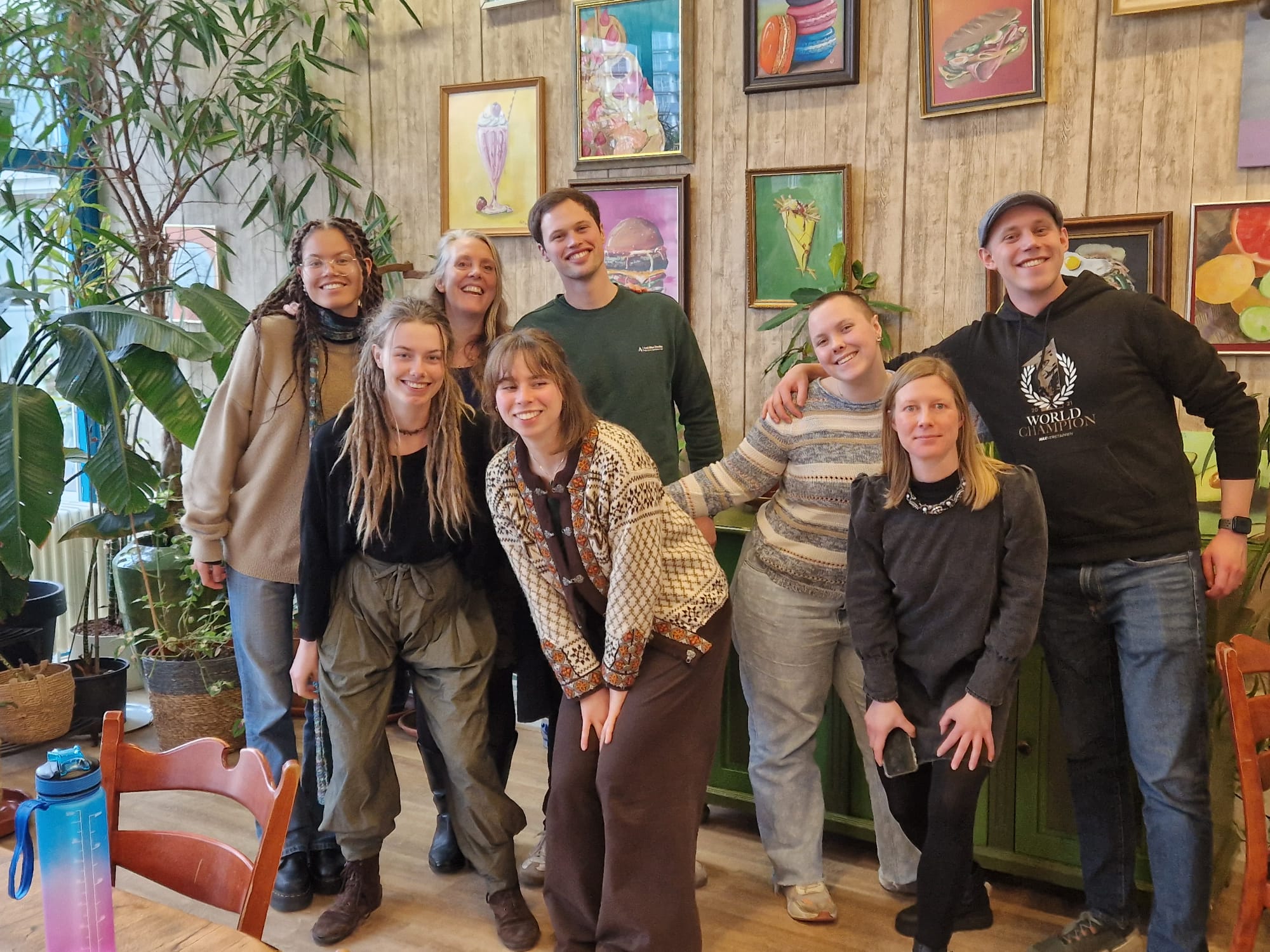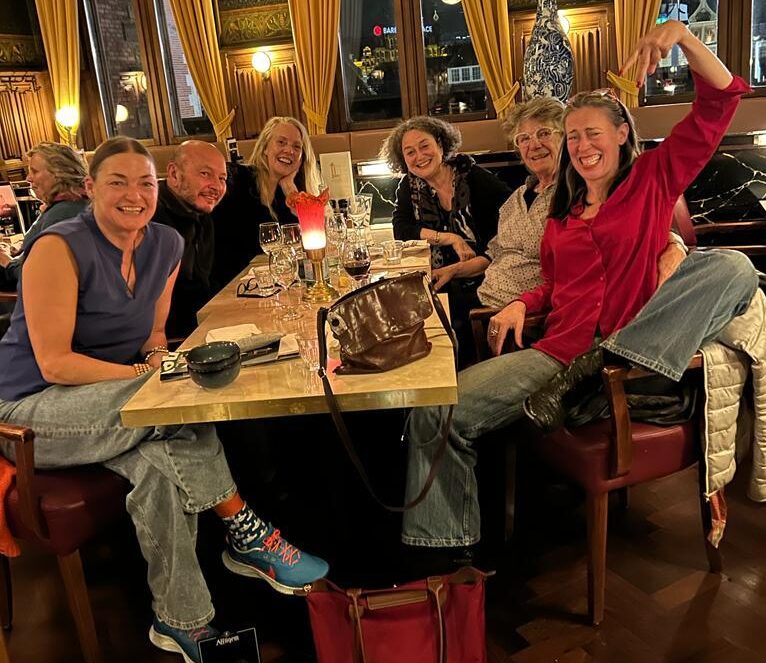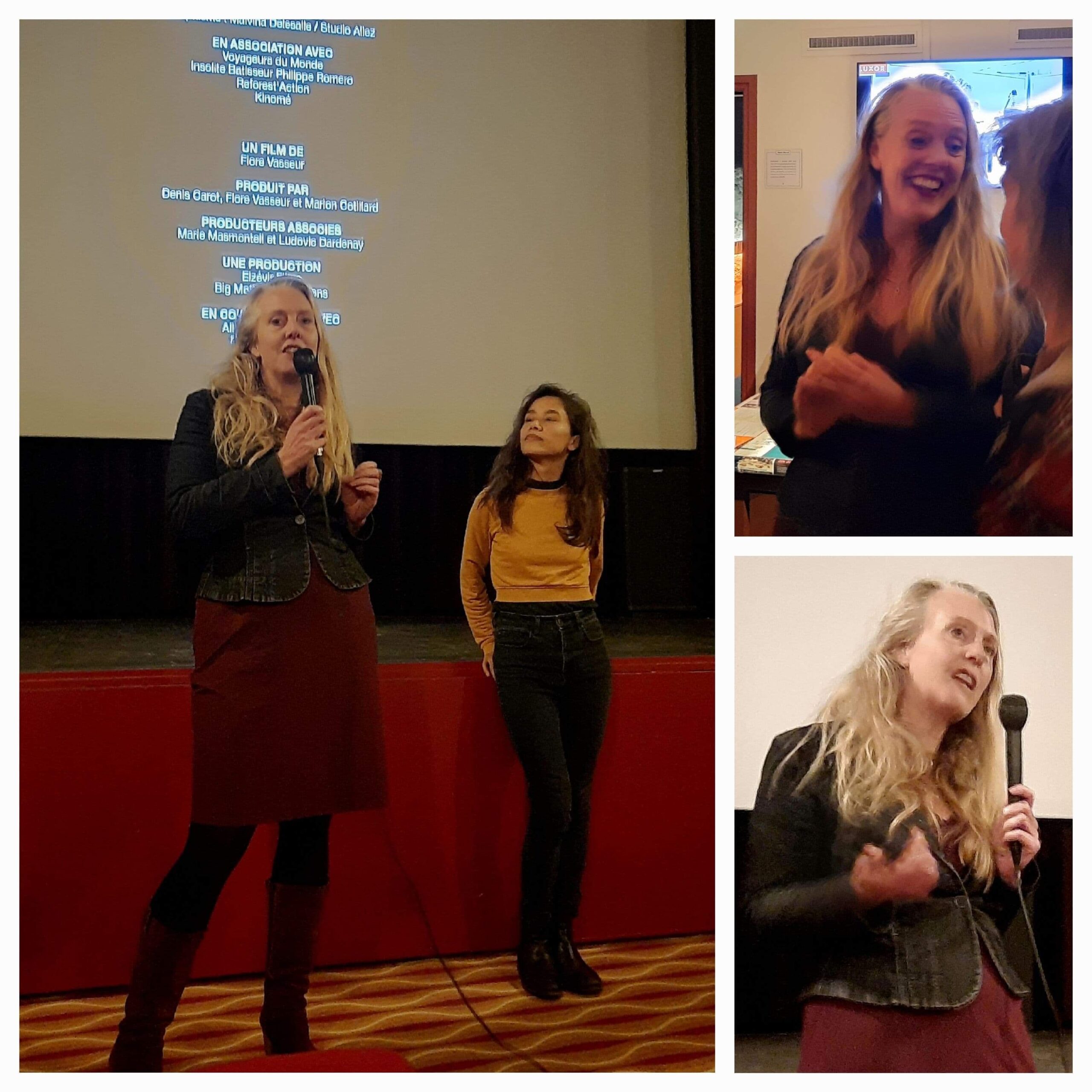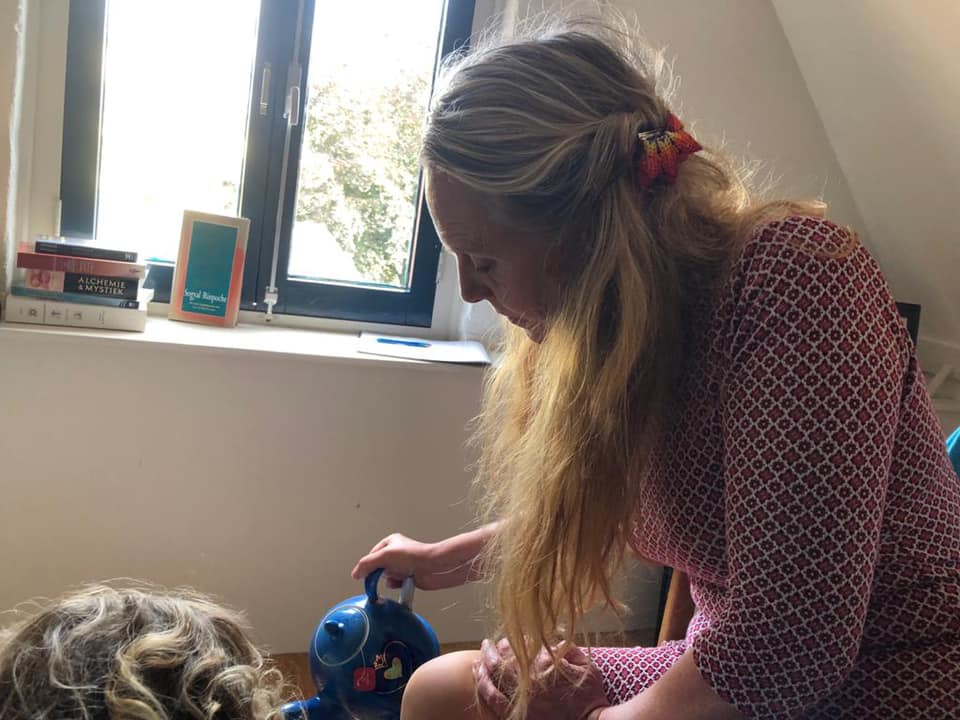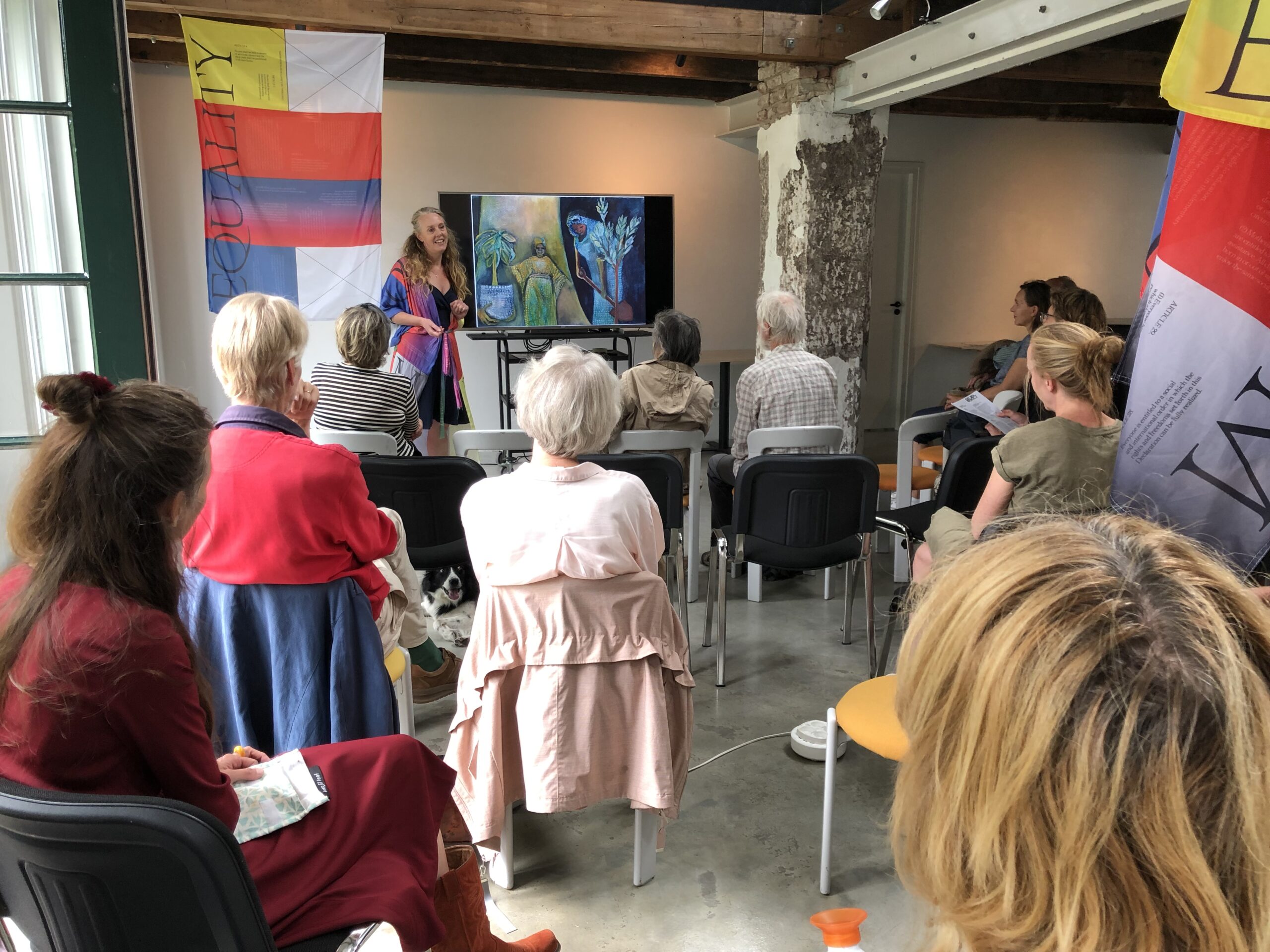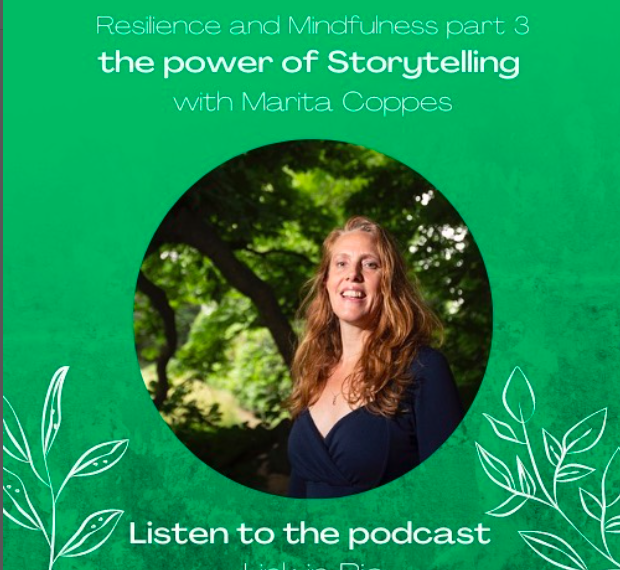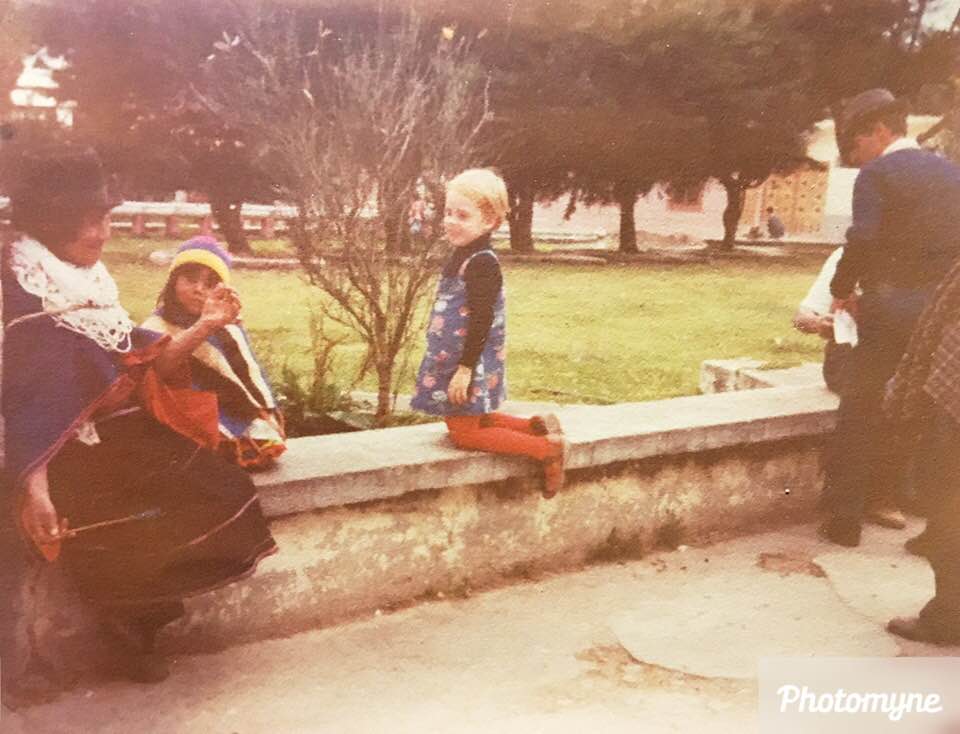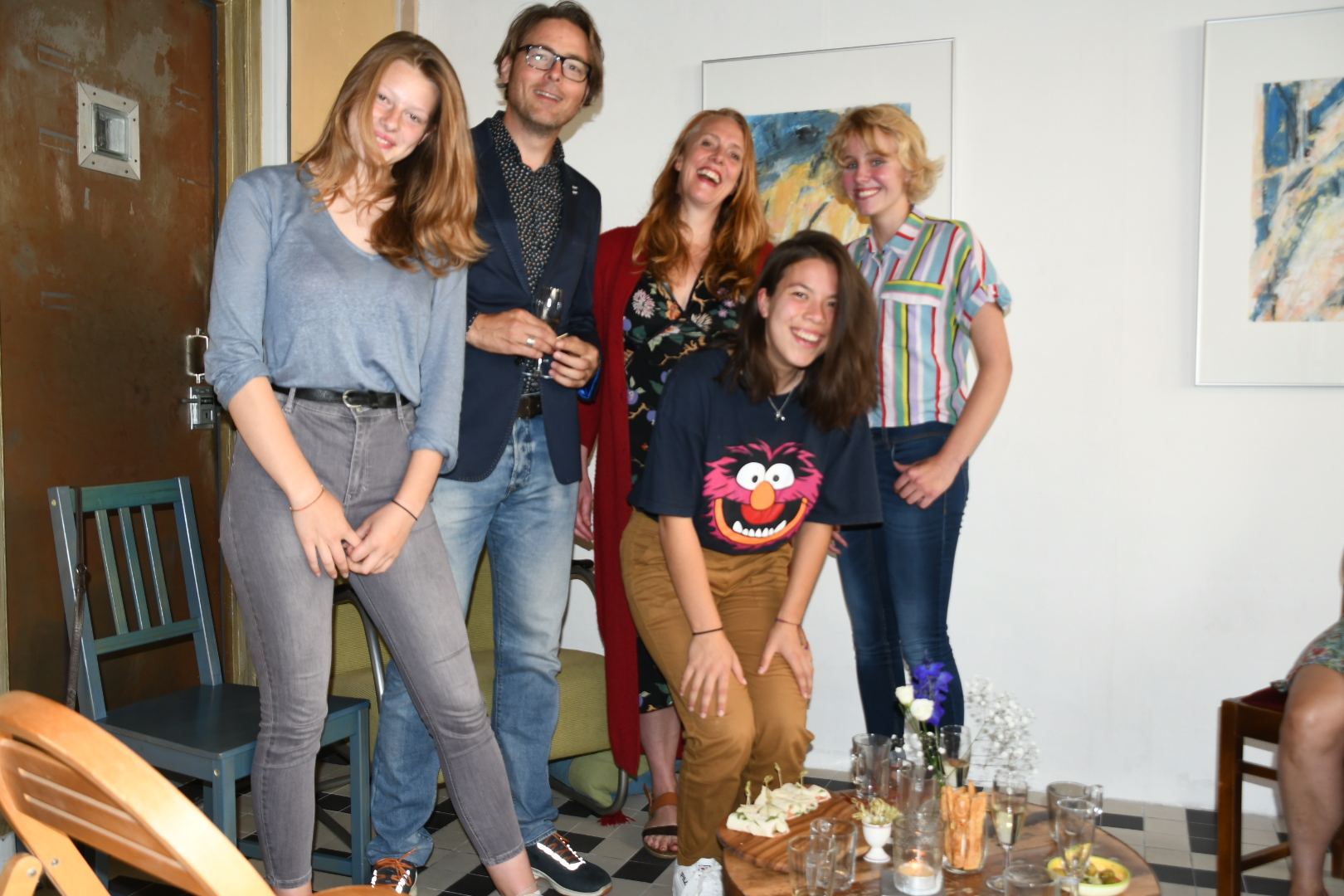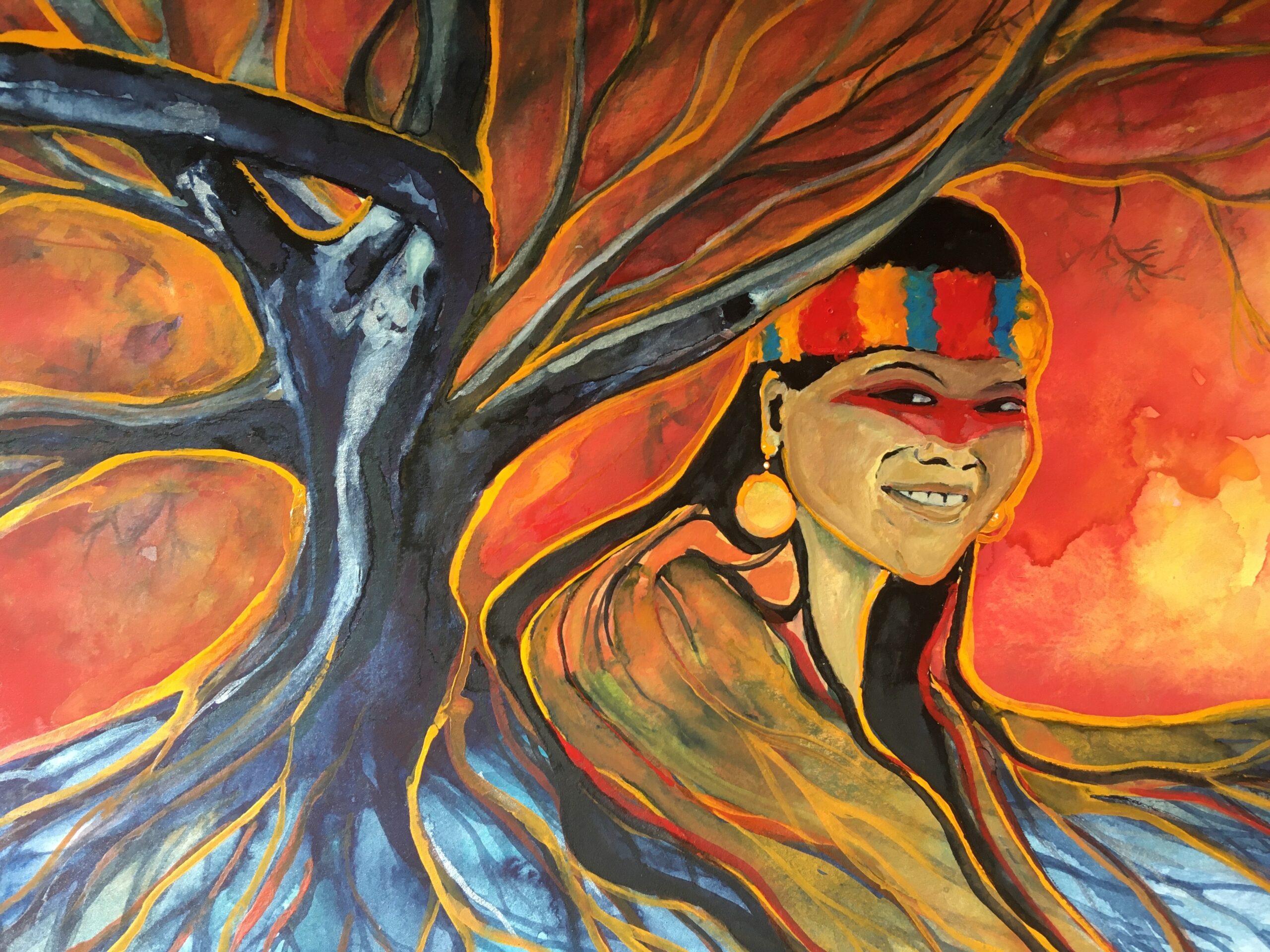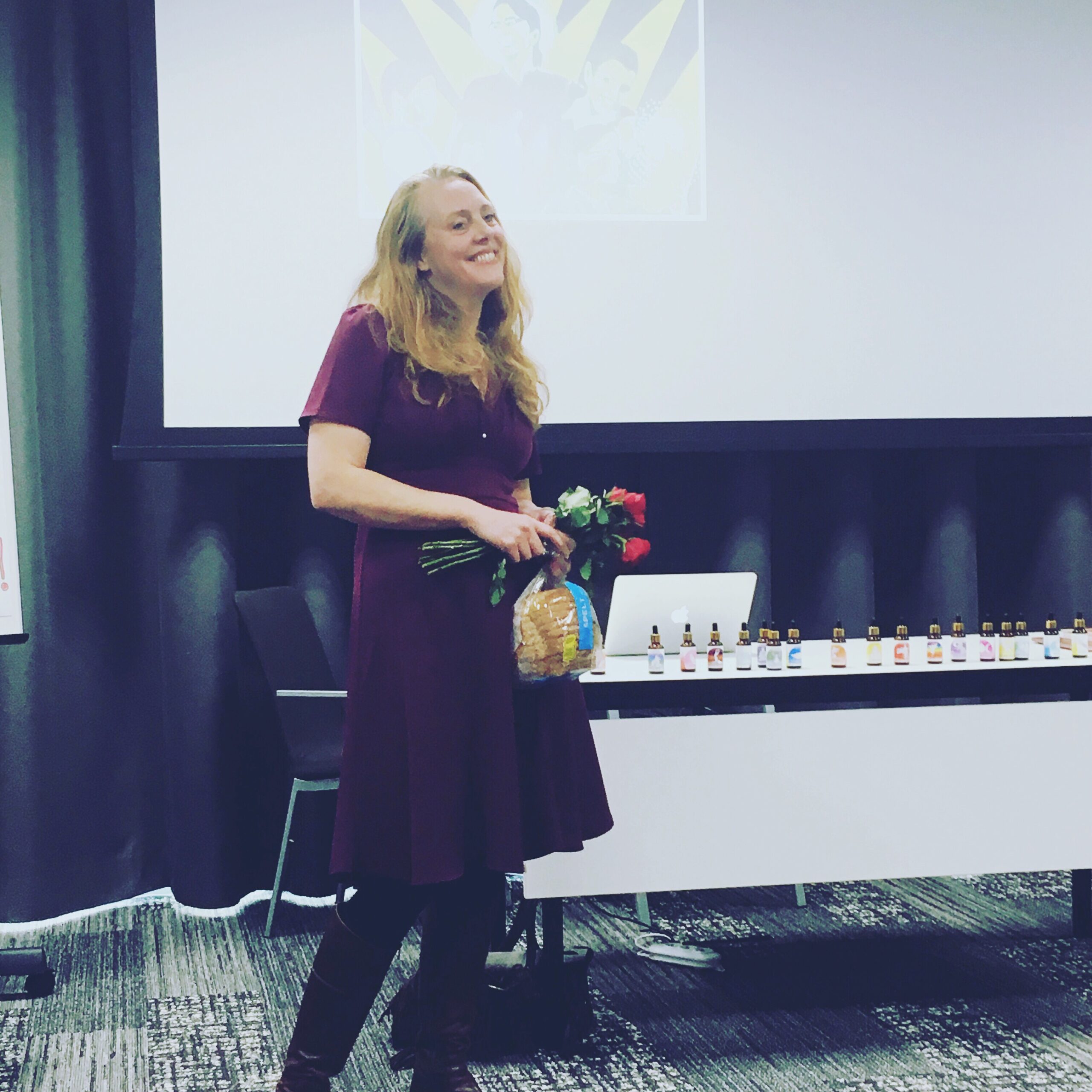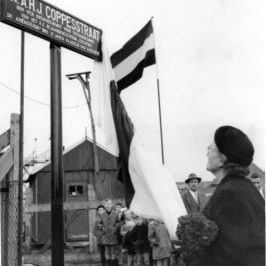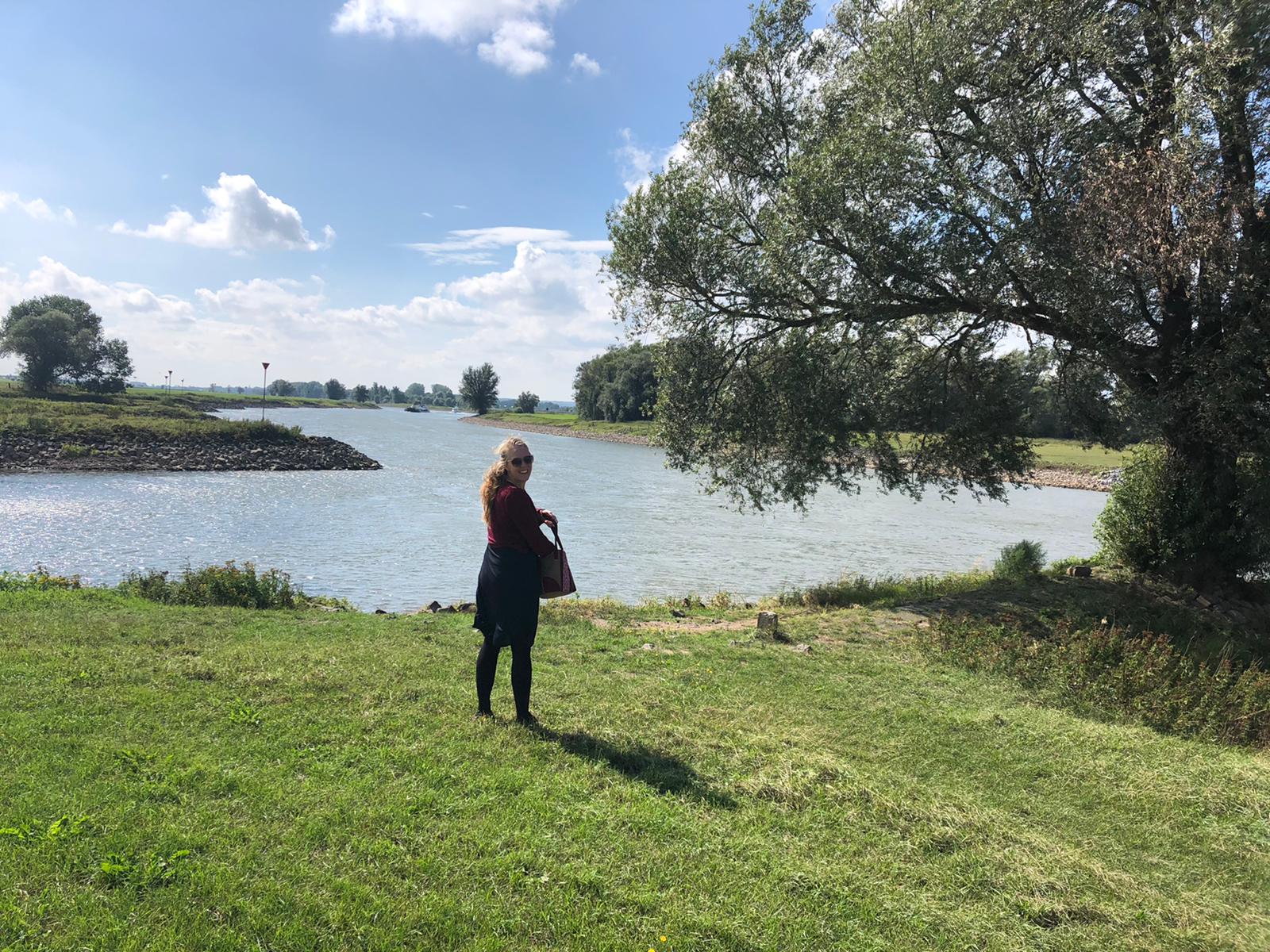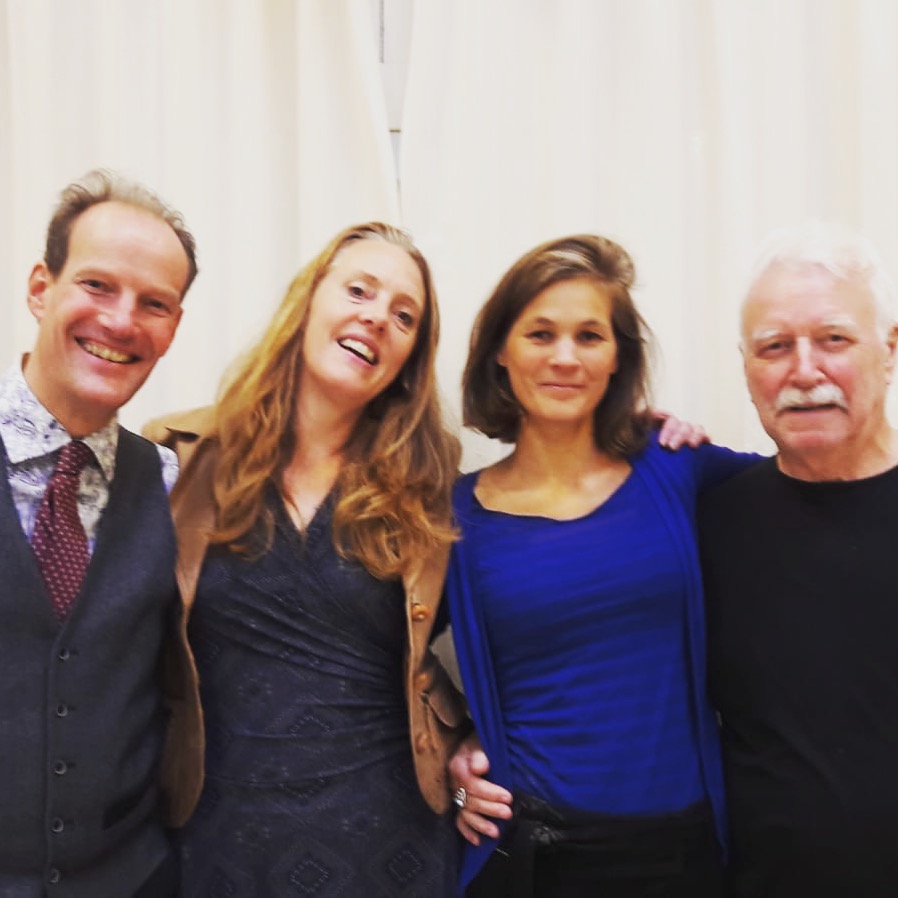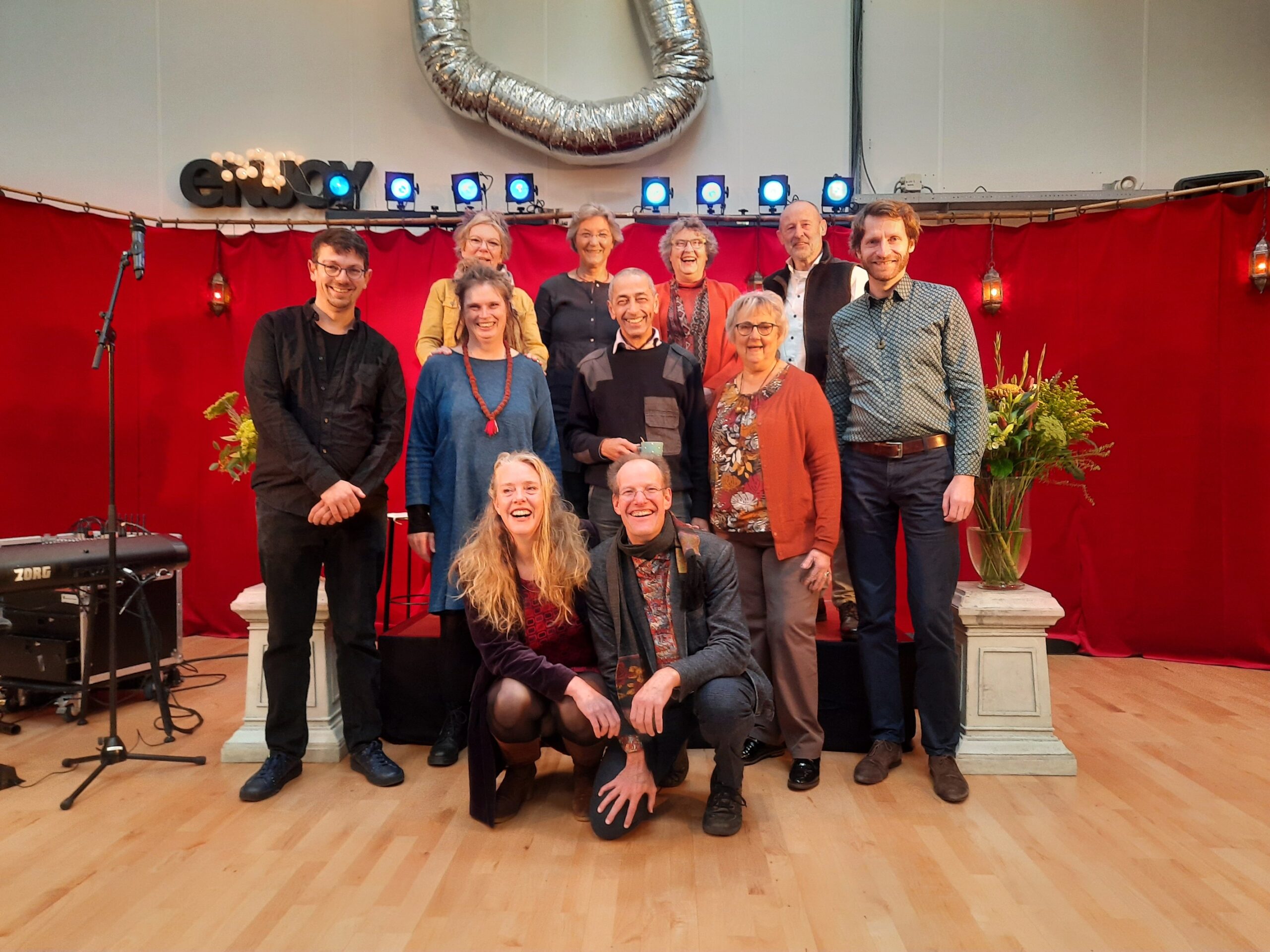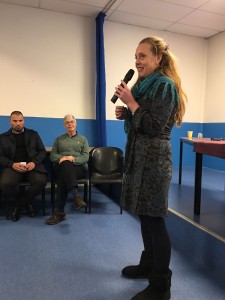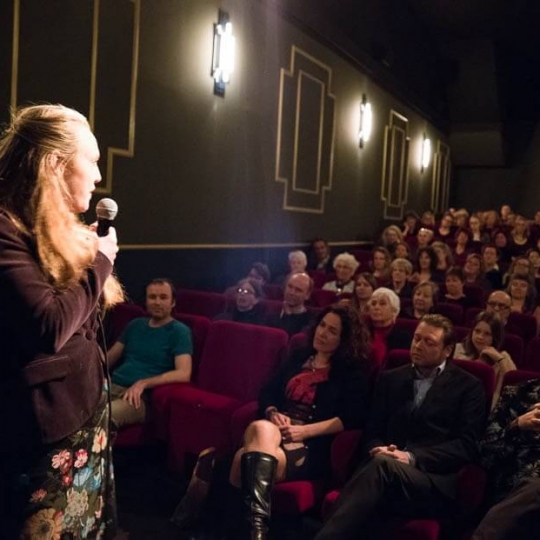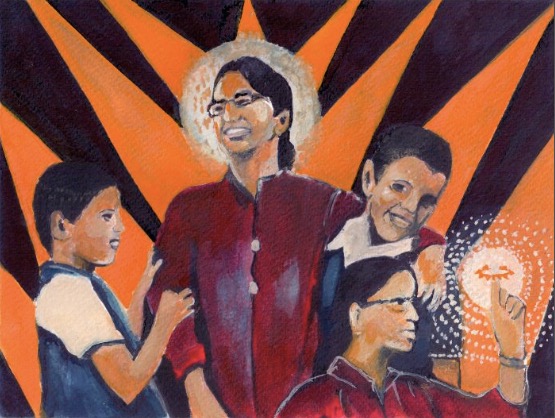Hier verzamelde ik een reeks mooie ervaringen en bespiegelingen.
- 19.04.2024
- initiëren
- inspireren
- netwerken
Hoe ouder ik word, hoe meer ik ervan doordrongen raak dat ik een goede voorouder wil (leren) zijn. Om die wens kracht bij te zetten heb ik een bos voor mijn verjaardag gevraagd voor Colombia, het land waar ik geboren ben.
- 15.02.2024
- co-creëren
- inspireren
- ontwikkelen
Jullie team is de drijvende kracht achter de Resiliency Labs. Hiermee benadrukken jullie het belang van het ontwikkelen van veerkracht in tijden van onzekerheid. Dankzij jullie is het nu onderdeel van het curriculum van de studie Global Project and Changemanagement.
- 15.02.2024
- initiëren
- onderzoeken
- verbinden
Gisteravond zijn de studenten van MindMe officieel benoemd tot Green Ambassadors! Een grote eer, want dit was de eerste Green Ambassador uitreiking van Windesheim en dit betekent dat wij als onderzoeksgroep goed opvallen.
- 07.03.2023
- inspireren
- verbinden
- vertellen
Dochters & vaders is een documentaire waarin filmmaker Sarah Marijnissen op zoek gaat naar de invloed van onevenwichtige dochter-vader relaties en hoe deze op latere leeftijd kunnen worden hersteld.
- 29.01.2023
- inspireren
- onderzoeken
- vertellen
In een huiskamertheater in Almen weefde ik verschillende verhalen aan elkaar, beginnend met mijn jeugd in Colombia, reizend naar de eerste keer dat ik weer terugkeerde naar Zuid-Amerika en inspiratie opdeed voor mijn boek en mijn serie 'de guardians of the future'.
- 17.10.2022
- inspireren
- onderzoeken
- vertellen
Veerkrachtige mensen hebben hetzelfde gemeen; ze hebben de moed om het narratief over zichzelf te veranderen.
- 17.10.2022
- inspireren
- verbinden
- vertellen
Ik was gast in Luxor. Mijn keuze film was 'Bigger than us', een film over zeven jonge changemakers. Daarna ging ik met het publiek in gesprek over waarom ik de film had uitgekozen, de link met mijn boek en de noodzaak van het veranderen van het narratief.
- 28.09.2022
- luisteren
- verbinden
- vertellen
Ik werkte mee aan de documentaire 'Het verhaal van soldaat Morgan, die vertrok vanuit Wales maar nooit meer terugkwam'
- 28.06.2022
- inspireren
- onderzoeken
- vertellen
Tijdens het IJsselfestival vertelde ik over Wangari Muta Maathai. Ik droeg de universal kimono waar de universele rechten van de mens op gedrukt staan. In mijn rug mijn portret van haar.
- 23.06.2022
- inspireren
- luisteren
- onderzoeken
Sinds kort is er wetenschappelijk bewijs waarmee de pionierende boomjurist kan schermen in de rechtbank. De Katholieke Universiteit in Leuven toonde een belangrijk verband aan tussen de aanwezigheid van oude, ontwikkelde bomen met een grote kruin en een lager gebruik van geneesmiddelen voor hart- en vaatziekten en mentale aandoeningen bij de mensen die in directe omgeving van die bomen wonen.
- 02.06.2022
- inspireren
- verbinden
- vertellen
Marita touches on: the connection between storytelling and resilience and how to keep your true tone through mindfulness practice and the idea behind the Resiliency Labs, a newly integrated part of the university curriculum.
- 04.03.2022
- luisteren
- ontwikkelen
- verbinden
Toen ik negen jaar oud was schreef ik de Indiase goeroe Bhagwan, die later Osho werd genoemd, een boze brief. Ik vond dat hij mijn vader had afgepakt en als hij hem kon afpakken, zo dicteerde mijn kinderlijke logica, kon hij hem ook weer terugsturen.
- 25.11.2021
- luisteren
- onderzoeken
- verbinden
Als we ervan uitgaan dat iedereen vroeg of laat door het leven verwond raakt, kun je je afvragen waarom we het in het onderwijs vooral hebben over feitenkennis, vaardigheden en over cijfers halen. Waarom leren we ze niet meer over onzekerheidsvaardigheid, faalmoed of kwetsbaarheidskunde?
- 02.03.2021
- inspireren
- luisteren
- vertellen
Ik ben er trots op dat ik mocht bijdrage aan het winnen van deze prijs. Ik heb mee mogen bouwen aan het verhaal voor de voordracht.
- 22.10.2020
- luisteren
- ontwikkelen
- verbinden
Jongeren van schrijfclub Nuwanda in Zutphen pennen corona van zich af: ‘Mijn typemachine baalt van mij’
Alleen op je studentenkamer. Niet op stap met je vrienden. Voor jongeren is de coronatijd een straf. Hoe ga je daarmee om en hoe raak je je coronastress kwijt? De jongeren van de Zutphense schrijfclub Nuwanda hebben een uitlaatklep: maak een kort verhaal over corona. Het is de bedoeling dat die schrijfsels, samen met andere korte verhalen, in de loop van 2021 worden gebundeld en uitgebracht.
- 02.09.2019
- luisteren
- onderzoeken
- vertellen
Sinds het aantreden van de Braziliaanse president Bolsonaro nemen de noodkreten van de bewoners van het Amazonegebied toe. Hoe gemakkelijk er over de hoeders van de Amazone wordt gebulldozerd, ondervond schrijfster Marita Coppes eind jaren negentig tijdens een reis door Ecuador.
- 23.04.2019
- inspireren
- onderzoeken
- vertellen
Het toekomstige klimaat van onze planeet is onlosmakelijk verbonden met de toekomst van onze wouden.’
Wangaari Mataai wist dat al in de jaren zeventig.
- 09.03.2019
- inspireren
- netwerken
- vertellen
oor mij is keuzevrijheid heel gewoon maar hoeveel systeemdoorbrekers zijn mij wel niet voorgegaan om dat voor elkaar te krijgen? Elke millimeter van de keuzevrijheid van de vrouwen van nu is centimeter voor centimeter bevochten aan keukentafels, in echtelijke bedden, in schoolbanken en op werkvloeren. En waar die keuzevrijheid nog niet algemeen aanvaard is, wordt er nog elke dag gestreden.
- 14.01.2019
- onderzoeken
- verbinden
- vertellen
Ik ben in 1974 geboren te Cali, één van de geweldadigste steden van de wereld. Het was in de tijd van de opkomst van Pablo Ecscobar en het Calikartel.
- 14.12.2018
- onderzoeken
- ontwikkelen
- vertellen
Voor vrouwen is de vrijheid om te kunnen kiezen nog niet zo oud. Slechts een paar generaties terug geloofden vrouwen nog dat ze geen keuze hadden als het op geboortebeperking, buitenshuis werken of studeren aankwam. Misschien is het daarom niet zo gek dat vrouwen het moeilijk vinden om voor zichzelf te kiezen.
- 06.10.2018
- inspireren
- luisteren
- onderzoeken
Ik ben sinds kort vaste columnist bij Contact. Dit verhaal gaat over hoe de liefde ontstond tussen mijn opa en oma in Zutphen.
Toen ik ruim zeventien jaar geleden voor het eerst de Oude IJsselbrug overliep wist ik nog niet dat in oorlogstijd mijn opa en oma over dezelfde brug hadden gelopen en hun liefde net een paar uur oud was. De zon scheen en lichtte de witte huizen aan de IJsselkade op.
- 26.09.2018
- co-creëren
- inspireren
- vertellen
De Nationale Vertelschool bestaat tien jaar! En we hebben dat natuurlijk gevierd met verhalen. Onze cursisten vertelden prachtige anekdotes vanuit verschillende jaargangen, meestervertellers Frans en Godfried vertelden over een olifant die door het dak van een schouwburg viel, Ailun en Wim gaven een miniworkshop en Marita vertelde over haar roman #delaatsteverhalenweefster.
- 17.08.2018
- inspireren
- luisteren
- vertellen
"Marita was afgelopen vrijdag te gast bij Paperback Radio Amsterdamfm: 'Ze maakte er een roman van die leest als een thriller en al lezend bijna als een film aan je geestesoog voorbijtrekt.' - Frans van der Beek."
- 22.06.2018
- inspireren
- luisteren
- vertellen
Vlak voor mijn boekpresentatie van mijn debuutroman hoorde ik van vriend Hubert dat hij haar zou meebrengen omdat ze geïnteresseerd was om me te interviewen voor het radioprogramma 'Simone's Songlines.' Als er ergens nog een puber in mij schuilt dan deed zij een rondedansje. Een dag na mijn boekpresentatie kreeg ik een uitnodiging en een uitleg van waar haar programma over gaat wat me gezien het thema van mijn boek erg aansprak.
- 16.05.2017
- inspireren
- ontwikkelen
- vertellen
De Nationale Vertelschool staat voor topkwaliteit in de vertelkunst door de unieke samenwerking van drie zeer ervaren verteldocenten:. De trainingen en workshops zijn sterk ervaringsgericht. We gaan spelenderwijs te werk. Tijdens onze trainingen en workshops doen we oefeningen gericht op ontspanning, concentratie, présence, verbeeldingskracht, contact maken met jezelf en met je publiek en het gebruik van stiltes. We spelen met sferen, stemmingen, emoties, het ontwikkelen van personages, het werken met dialogen en het gebruik van ruimte.
- 11.11.2016
- luisteren
- netwerken
- vertellen
Ik heb een afspraak met Marita Coppes, vertelkunstenaar bij uitstek. Ze schrijft en schildert. En ze inspireert, ontmoet en verbindt mensen middels verhalen. Tijdens de netwerkbijeenkomst van het Handvest voor Compassie op zaterdag 12 november zal Marita haar vertellende kracht dan ook inzetten om de bezoekers nog meer te inspireren tot compassie met verhalen.
- 22.03.2016
- inspireren
- onderzoeken
- vertellen
Marita Coppes (41) uit Zutphen vertelt, schildert, schrijft en doceert. De afgelopen twee jaar werkte ze aan twaalf iconische schilderijen van bijzondere vrouwen die nu de inspiratiebron zijn voor de verhalen die zij en vijf andere vertellers gaan uitdragen op Wereldverteldag.
- 06.10.2015
- inspireren
- onderzoeken
- vertellen
Onder mijn handen groeide Sunitha uit tot een modern icoon. Het schilderij liet ik op een kaars en een waterfles drukken en ik maakte er een mooi pakket van. Een vriendin van mij die afgelopen zomer naar India ging, bracht het pakket naar Hyderabad, de stad vanwaaruit zij haar werk doet. Niet lang daarna kreeg ik een mail van Sunitha met de volgende woorden: ‘Dank je wel voor het versterken van mijn kracht. Het is geweldig om te weten dat er ergens iemand is die genoeg om je geeft om dit voor je te doen.’
